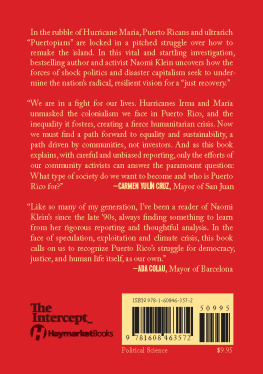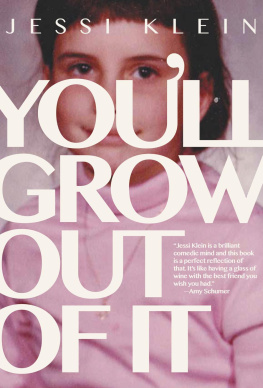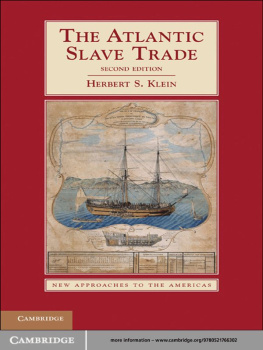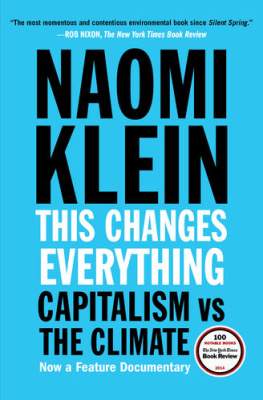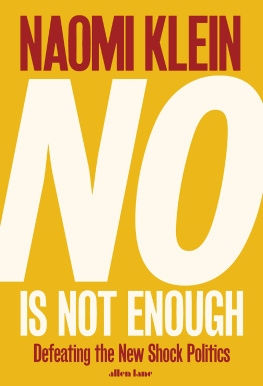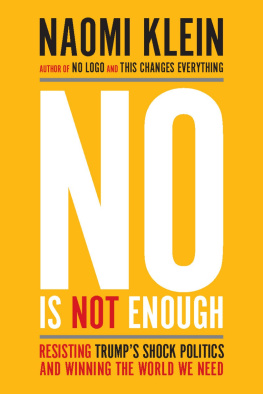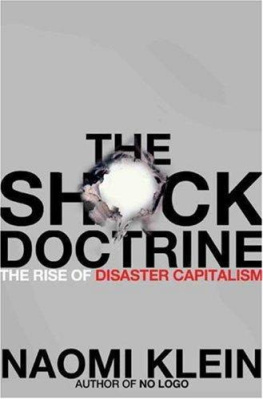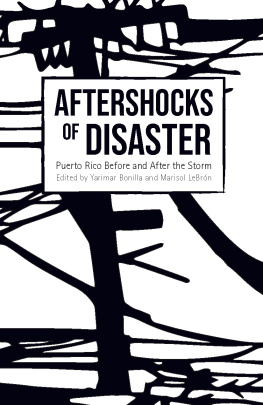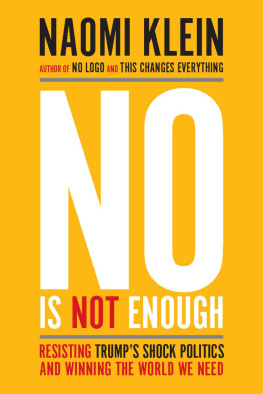
THE
BATTLE
FOR
PARADISE
THE
BATTLE
FOR
PARADISE
Puerto Rico Takes On the Disaster Capitalists
NAOMI KLEIN
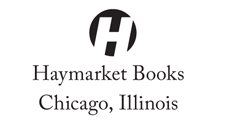
2018 Naomi Klein
First published by The Intercept (theintercept.com)
Published in 2018 by
Haymarket Books
P.O. Box 180165
Chicago, IL 60618
773-583-7884 www.haymarketbooks.org
ISBN: 978-1-60846-431-9
Trade distribution:
In the US, Consortium Book Sales and Distribution,
www.cbsd.com
In Canada, Publishers Group Canada,
www.pgcbooks.ca
In the UK, Turnaround Publisher Services,
www.turnaround-uk.com
All other countries, Ingram Publisher Services International,
This book was published with the generous support of Lannan Foundation and Wallace Action Fund.
Library of Congress Cataloging-in-Publication data is available.

All royalties from the sale of this book in English and Spanish go directly to JunteGente, a gathering of Puerto Rican organizations resisting disaster capitalism and advancing a fair and healthy recovery for their island. For more information, visit juntegente.org.
FOREWORD
Weeks after the passing of Hurricane Maria in Puerto Rico, members of PAReSa collective of professors created to defend public education during the 2017 University of Puerto Rico student strikemet to discuss how to confront the devastation that the country and our university faced. What concerned us was not only the enormous physical damage caused by the storm but also the intensification of neoliberal policies to come.
We knew that the real disaster was not the hurricane but the terrible vulnerability imposed by Puerto Ricos colonial relationship to the United States, as well as the forced privatization of health and other services; massive layoffs; huge numbers of school closures; reductions in social rights and in investments for collective well-being; abandonment of social and physical infrastructure; and high levels of government corruption and ineptitude. This vulnerability was aggravated by Washingtons imposition of the Financial Oversight and Management Board, an unelected body pushing for the privatization of electricity and schools, increased costs of basic services, massive cuts in public education, pensions, vacation time, and other rightsall in order to pay bondholders a $73 billion debt that was patently unpayable, illegal, and illegitimate. The net result was to leave the majority of people in Puerto Rico without a hopeful future, and that was all before Hurricane Maria hit our shores.
PAReS decided to create a series of public forums on disasters, hoping to generate public debate and encourage new kinds of collective thinking about resistance and alternatives. We invited Naomi Klein as our first speaker, to talk about her work focusing on the application of a shock doctrine in various post-disaster settings. Our goal was to highlight how disaster capitalism was being applied in Puerto Rico, to promote equitable and ecological alternatives to these policies, and to strengthen the project of public education as a common good. We also wanted to denounce the exploitation of Hurricane Maria to promote widely rejected neoliberal policies that undermine our countrys well-being, especially that of our most vulnerable inhabitants. These policies will limit access to basic rights such as water, electricity, and housing, and will destroy our environment, health, and democracy, as well as our quality of life and economic stability. And all the while, they will increase the transfer of wealth to the already rich.
In solidarity, Naomi accepted our invitation and spent an intense week with us in January 2018. Our time together included a forum on disaster capitalism at the University of Puerto Rico, Ro Piedras, which was attended by more than 1,500 people and was widely covered in the press. We also took multiple trips across the island to research the topics of debt and privatization, energy sovereignty, and food sovereignty. The week finished with a full-day gathering of more than 60 organizations resisting disaster capitalism. These organizations have continued to meet, giving rise to the creation of the JunteGente network, with the aim of uniting different struggles for the future of Puerto Rico. Naomis visit, as well as the presence of other groups featured in this book, helped to develop ongoing discussions on how organized civil society can build a counter-shock strategy able to resist disaster capitalism and promote alternatives to neoliberalism on a national scale.
A product of these intense investigations and conversations, this book clearly shows the historical juncture at which Puerto Rico finds itself. Interspersing stories of the super-rich who seek to buy our country for a bargain with reports from grassroots struggles over agro-ecology, renewable energy, and public education, Klein acutely and captivatingly exposes the essence of the battle that is being waged between these opposing visions. On one side lies the utopia (for us, a dystopia) of Puerto Rico as a resort for the wealthy. On the other, a utopian vision of a Puerto Rico that is equitable, democratic, and sustainable for all. In addition, Klein addresses the historical complexities of this moment, linking current struggles to long-standing processes of colonialism and neoliberalism. The book is thus a necessary read for anyone who wishes to understand the ongoing crisis in Puerto Rico and to grasp what is at stake, which is nothing less than the survival of the people of our beautiful Caribbean archipelago.
Federico Cintrn Moscoso
Gustavo Garca Lpez
Mariolga Reyes Cruz
Juan Carlos Rivera Ramos
Bernat Tort Ortiz
Professors Self-Assembled in Solidarity
Resistance (PAReS)
April 2018
A SOLAR OASIS
Like everywhere else in Puerto Rico, the small mountain city of Adjuntas was plunged into total darkness by Hurricane Maria. When residents left their homes to take stock of the damage, they found themselves not only without power and water, but also totally cut off from the rest of the island. Every single road was blocked, either by mounds of mud washed down from the surrounding peaks, or by fallen trees and branches. Yet amid this devastation, there was one bright spot.
Just off the main square, a large, pink colonial-style house had light shining through every window. It glowed like a beacon in the terrifying darkness.
The pink house was Casa Pueblo, a community and ecology center with deep roots in this part of the island. Twenty years ago, its founders, a family of scientists and engineers, installed solar panels on the centers roof, a move that seemed rather hippy-dippy at the time. Somehow, those panels (upgraded over the years) managed to survive Marias hurricane-force winds and falling debris. Which meant that in a sea of post-storm darkness, Casa Pueblo had the only sustained power for miles around.
And like moths to a flame, people from all over the hills of Adjuntas made their way to the warm and welcoming light.
Already a community hub before the storm, the pink house rapidly transformed into a nerve center for self-organized relief efforts. It would be weeks before the Federal Emergency Management Agency or any other agency would arrive with significant aid, so people flocked to Casa Pueblo to collect food, water, tarps, and chainsawsand draw on its priceless power supply to charge up their electronics. Most critically, Casa Pueblo became a kind of makeshift field hospital, its airy rooms crowded with elderly people who needed to plug in oxygen machines.
Next page
